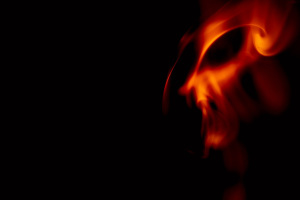Why Christians Need to Care About Animals, Not Just Humans

A pastor cares for his or her flock by tender concern, prayer, and insight into his parishioners. But one may be pastoral without being called to be a pastor of a church. I know a young man who graduated from Denver Seminary who has never held a pastoral position, but who is more pastoral with friends, family, and strangers than most pastors I know. He recently befriended a lonely man dying from a neurological disease and continued to pastor him until his death. Matt is a pastoral non-pastor. Sadly, we find non-pastoral pastors. I will argue that ordinary Christians can be pastors to animals. Certainly, there are no paid positions in this field, but life is bigger than a salary.
An old stanza from old poem by Frances Alexander sets the tone:
All things bright and beautiful,
All creatures great and small,
All things wise and wonderful,
The Lord God made them all.
Animals and humans were created by God to live together in harmony. Of course the fall and the flood changed all that, but all the living kinds that God created remain good, as Genesis 1 teaches. Paul the Apostle, of course, agrees:
For everything God created is good, and nothing is to be rejected if it is received with thanksgiving, because it is consecrated by the word of God and prayer (1 Timothy 4:4-5).
The Bible tells us that humans alone bear the image of God (Genesis 1:26), and that this image remains after the fall (Genesis 9). Since man is the image of God, it cannot be irradiated. This hard break between humans and the rest of God's creation does not imply that men and women can treat animals anyway they wish. Animals are not mere fodder for human whims.
Along with all creation, animals are owned by God and display aspects of God's character. God invokes his design of the animal kingdom in answering Job from the whirlwind (Job 38-42). Our Lord, Jesus Christ, tells us to consider God's care for creatures:
Look at the birds of the air; they do not sow or reap or store away in barns, and yet your heavenly Father feeds them. Are you not much more valuable than they (Matthew 6:26).
Humans have more value than the birds, but that does not imply that the birds have no value. If they lacked value, Jesus teaching would fall flat. God commanded ravens to bring Elijah food while he was in an area east of the Jordan River (1 Kings 17:4-6).
God has made a covenant with all of creature, not merely humans. As he told Moses:
Behold, I establish my covenant with you and your descendants after you, and with every living creature that is with you, the birds, the cattle, and every beast of the earth with you, as many as came out of the ark (Genesis 9:9-10).
Both man and beast are accountable to God and recipients of his grace.
Through the prophet Hosea, God further promises a future covenant for the animal creation.
In that day I will make a covenant for them with the beasts of the field, the birds in the sky and the creatures that move along the ground. Bow and sword and battle I will abolish from the land, so that all may lie down in safety (Hosea 2:18).
Without developing a whole theology of the animal world, I offer a few principles for how Christians can show pastoral concern to animals, whether or not they interact with them regularly and directly.
First, animals deserve prayer. As God's creatures, we should desire their well-being in relation to our own flourishing. Sometimes animals must be sacrificed for human good. The Creator gave us dominion over them (Genesis 1:28; Psalm 8) and they do not have rights equal to our own. Yet the dog, the horse, the pig, the lion, the elephant are part of the company of the living.
For the creation waits in eager expectation for the children of God to be revealed. For the creation was subjected to frustration, not by its own choice, but by the will of the one who subjected it, in hope that the creation itself will be liberated from its bondage to decay and brought into the freedom and glory of the children of God. We know that the whole creation has been groaning as in the pains of childbirth right up to the present time (Romans 8:19-22).
There are here intimations that animals will be part "the freedom and glory of the kingdom of God," but I will not pursue that. Suffice to say that the frustration of creation calls out for prayer for the repairing of the world.
I often pray for my friend's horses, my dog, other pets, and wild animals. My prayer is expanding to cover the global plight of many animals, particularly dogs that are abused in puppy farms and through dog fighting. Animals used for food are often kept in painful conditions before their slaughter. I am no vegetarian, but this needles cruelty finds no justification in a Christian worldview. The animal scientist Temple Grandin has developed humane ways to treat such animals. These examples, and myriad others, are issues of justice. While we cannot side with activist groups such as PETA, who deem animals as valuable as humans, we can work and pray for the human treatment of animals. I commend the Human Society and pray for them and their work. We may also offer prayers of thanksgiving because circuses no longer exploit elephants, creatures too noble to be mere means to human entertainment.
Second, an animal pastor works to strengthen the animal-human bond and to honor the death of beloved animals. Pets are now often put down in their owner's homes, so the farewell may be less traumatic than in a clinical setting. Several years ago, I went to the home of a young couple who called the vet to euthanize their storied dog, Emma, who had lung cancer. I said goodbye to Emma (who waged her tail when I entered the house) and with her owners. It was a pastoral visit. Many who lose their pets feel ashamed to grieve so strongly for animal or think they must endure this alone. This ought not to be. An animal pastor helps shepherd this communion of beings through life's terrible transition to death. I show affection to the dog, thanking him or her for her life. I look into their eyes. Of course, I express consolation to the owners and pray with them before or after the sad event. And I keep them in my prayers. Sending a consolation card to the bereaved is a loving gesture also.
After the death of a friend's dog in 2011, I wrote the following prayer, which I often send to those in a similar situation.
Prayer for One Grieving Over the Loss of a Pet
I said in mine heart, God shall judge the righteous and the wicked: for there is a time there for every purpose and for every work.
I said in mine heart concerning the estate of the sons of men, that God might manifest them, and that they might see that they themselves are beasts.
For that which befalleth the sons of men befalleth beasts; even one thing befalleth them: as the one dieth, so dieth the other; yea, they have all one breath; so that a man hath no preeminence above a beast: for all is vanity.
All go unto one place; all are of the dust, and all turn to dust again.
Who knoweth the spirit of man that goeth upward, and the spirit of the beast that goeth downward to the earth?
Wherefore I perceive that there is nothing better, than that a man should rejoice in his own works; for that is his portion: for who shall bring him to see what shall be after him?—Ecclesiastes 3:17-22, King James Version.
Oh Creator of all living things, and Giver of every good and perfect gift, we thank you for the gift of living creatures. You have made each thing according to its kind, each finds its place in your creation. You have given us dominion over the earth and put living things into our care, including our pets. We thank you for these animal friends, and while we know they cannot provide the fellowship given by members of our own kind, we thank you for the love and joy that comes from these fellow creatures.
We ask you now to comfort the master of a beloved pet who has gone the way of all flesh. All the living will likewise die, and the death of one of your image-bearers is far more consequential than that of a dog or cat. Yet the master grieves the loss of an animal companion, one put in his or her care. Fond memories of pet's can last a lifetime. We ask that the manifold sorrows of this veil of tears not overwhelm the master, that life without their beloved pet would find healing and that the memories of this unique creature would bring happiness and consolation even in light of the bitterness of loss.
In the name of Jesus Christ, the Great Shepherd of the Sheep.
Amen.
Third, an animal pastor blesses animals. He is benedictory. I have written on the philosophical meaning of benediction elsewhere on my blog, and it is vexing to encapsulate. A benediction is somewhere between a command and a wish. "May you find peace," is a benediction. In the Anglican liturgy, members of the congregation greet each other by saying "The people of the Lord," after the confession of sin and assurance of pardon. In the Bible, a benediction endeavors to confer divine well-being on a person, family, or nation. Consider this passage:
Now may the God of peace, who through the blood of the eternal covenant brought back from the dead our Lord Jesus, that great Shepherd of the sheep, equip you with everything good for doing his will, and may he work in us what is pleasing to him, through Jesus Christ, to whom be glory for ever and ever. Amen (Hebrews 13:20-21).
Since animals partake of God's covenants, and since they are given to us a good creations, we should bless them; that is, we, in a holy state of mind full of love, should desire their best. I cannot resist another anecdote.
Recently I was asked contribute to a video project on the subject of the biblical equality between men and women—a subject my wife and I have written and spoken of much in the last two decades. When entering the house, I first greeted my old friends who were sponsoring the project. But I then noticed a diminutive white ball of dog fluff named Abbie, who, I was told, was advanced in years. Abbie had a slight limp, but was friendly and affable. I greeted her by holding her head in my hands, getting down to her level, and blessing her. We hit it off. During my 45-minute interview, Abbie lay down next to me and relaxed (off camera, sadly). When finished with the interview, I said goodbye to my human hosts. But Abbie was stranded underneath about ten feet away underneath a step too high for her to surmount. She looked balefully at me with anticipation. We reunited and said goodbye. The hosts remarked that she did not act that way with other strangers to the house. I know why. I was her chaplain.
The Roman Catholics developed a liturgy for "the blessing of the animals." Although I am a loyal Protestant, the Catholics have us beat on this. Catholics observe the blessing of pets and animals on October 4, the feast of St. Francis of Assisi, or on a Sunday nearest that date. I take the following from an on-line article, "Blessing of Animals" by Kevin E. Mackin, O.F.M.
At Franciscan churches, a friar with brown robe and white cord often welcomes each animal with a special prayer. The Blessing of Pets usually goes like this:
Blessed are you, Lord God, maker of all living creatures. You called forth fish in the sea, birds in the air and animals on the land. You inspired St. Francis to call all of them his brothers and sisters. We ask you to bless this pet. By the power of your love, enable it to live according to your plan. May we always praise you for all your beauty in creation. Blessed are you, Lord our God, in all your creatures! Amen.
Even if Protestant church do not adopt this practice (maybe a few have), the sentiments are applicable to any Christian's relationships to pets and other animals.
My theology of animals and how to pastor them is inchoate, but it is growing the more I observe and reflect on the animal kingdom all around us. Consider applying these three principles to your life with the creatures outside your species but under God's care.
Douglas Groothuis, Ph.D., is Professor of Philosophy at Denver Seminary, where he has served since 1993. He is the author of thirteen books, including Christian Apologetics: A Comprehensive Case for Biblical Faith, Philosophy in Seven Sentences, and, most recently, Walking Through Twilight: A Wife's Illness--A Philosopher's Lament.
Keep up with his writing at https://douglasgroothuis.com



























